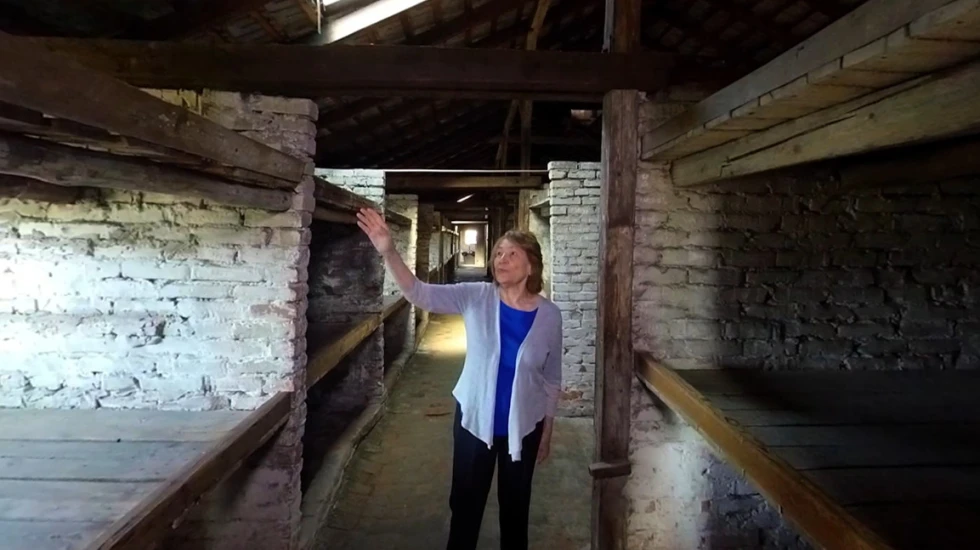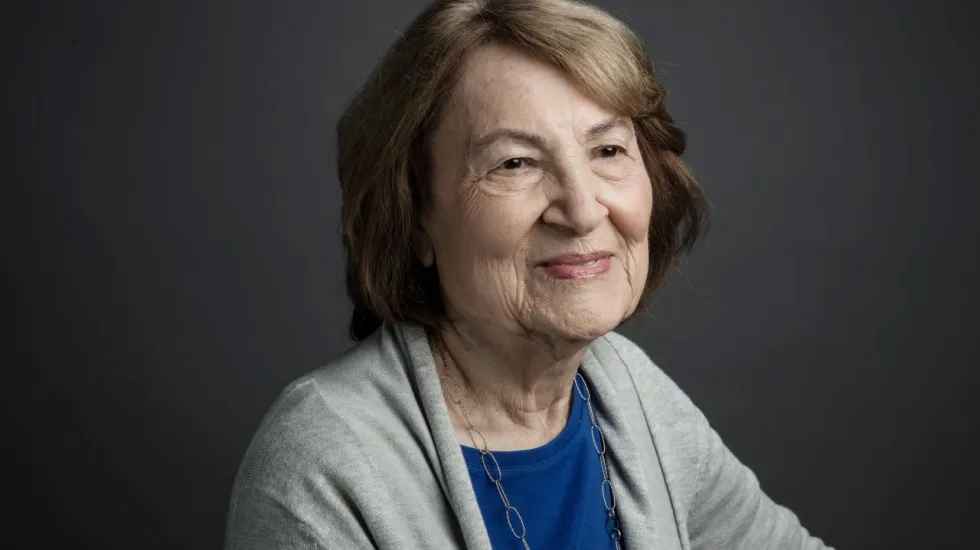
My grandmother, Fritzie Fritzshall, survived Auschwitz.
Czechoslovakian-born, my grandmother was just 13 years old when she was pushed out of a boxcar and into hell. She was torn from her mother and her two brothers, all of whom were murdered. She survived because of the selfless acts of others.
The man who pulled her from the train, a Jewish prisoner, whispered in her ear: “You’re 15. Remember, you’re 15.” When the guards asked her age, she told them she was 15. They sorted her into the line of people who would live another day. The other line led straight to the gas chambers.
Opinion
Toward the end of the war, my grandmother was transferred to a sub-camp of Auschwitz where she was one of 600 women working as a slave in a factory. Their sole meal for the day was a small chunk of bread. Every night, each of the other 599 women would give her, the youngest, a crumb of their bread in the hope she would survive. Together, the crumbs were the size of a large marble. She promised that if she made it out, she would tell the world what happened.
My grandmother spent the rest of her life fulfilling that promise.
She was dedicated to educating future generations about the Holocaust and helped found the Illinois Holocaust Museum and Education Center in response to a planned neo-Nazi march in Skokie in the late 1970s.
As a Holocaust survivor, she wanted people to hear her story, and even to be able to picture it and understand it as though she were taking them on a personal tour of the notorious concentration camp. She worried that Auschwitz might be left to decay or redeveloped, and that the stories of so many who didn’t survive would be lost forever.
Thus, she became a driving force behind The Journey Back, a virtual reality experience with Holocaust survivors that just opened to the public at Illinois Holocaust Museum.
This project was her final contribution to the world, though sadly she didn’t live to see her vision come to fruition. She died just months before the opening.
Doing more on Holocaust education
Shortly after her funeral, where I said goodbye to a woman who deeply impacted who I am today, I put on a VR headset. My grandmother’s voice immediately echoed in my ears. I walked with her outside her childhood home. I joined her as she was forced into a claustrophobic cattle car. I stood by her as she recalled how as a teenager, she saw the concentration camp and all its horror before her.

I had heard my grandmother’s story many times. This was the first time that I was immersed in it. Now, for years to come, people from all over the world will be able to put on a pair of virtual reality goggles and find themselves in present-day Auschwitz.
These stories, and the visceral way in which they are told, will have a major impact on the way Holocaust education is taught. While Holocaust education is required in multiple states nationwide, more needs to be done.
Making a difference
Stories like my grandmother’s are essential in humanizing the Holocaust. The Journey Back allows everyone, especially students, to understand the dark realities of history and understand hatred and violence are never the answer.
Without learning and contextualizing history, the past can indeed be repeated. It was my grandmother’s hope this new application of technology will inspire the next generation not just to remember, but to develop empathy and speak out against injustice and hate.
Opinion This Week
A weekly overview of opinions, analysis and commentary on issues affecting Chicago, Illinois and our nation by outside contributors, Sun-Times readers and the CST Editorial Board.
My grandmother endured some of the most horrific conditions in history and never lost hope. We must decide not to let hate conquer. We must hear stories like hers and remember we can make a difference, even with small actions. Each one of us has agency and can use it to make a difference in the world. My grandmother has fulfilled her promise. She has told her story, and through it, the stories of many others who couldn’t tell theirs. Now it’s up to us to listen.
Scott Fritzshall is a Los Angeles-based tech entrepreneur and the grandson of the late Holocaust Survivor Fritzie Fritzshall, one of the founders of the Illinois Holocaust Museum and a driving force behind the museum’s new virtual reality experience.
Send letters to letters@suntimes.com







